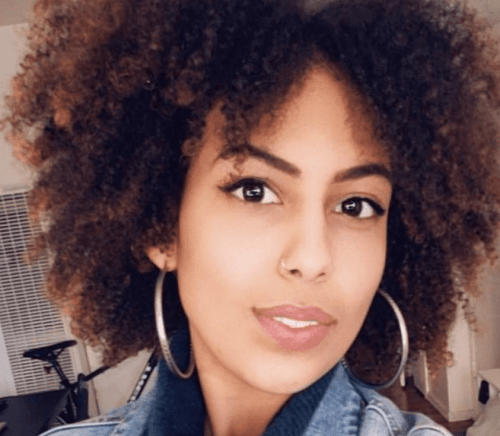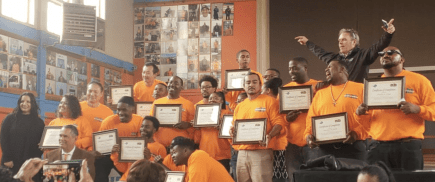
Black Labor Matters
In this week’s blog, we explore the nexus of Labor and Race, and how the interests of recent MA Urban and Public Affairs Graduate, Alexandra Catsoullis, ‘19, aligned with her summer internship to produce her thought-provoking Capstone project. We’ll let Alex tell it in her own words.
My capstone Black Labor Matters: Race, Working America, and the Struggle for Collective Economic Equity explores how discriminatory workplace practices and racism are directly correlated to the Black-White wealth disparity and seeks to answer if unions are the key to remedying these inequities. America’s mistreatment of Black people has been one of the greatest atrocities in U.S history. From slavery to Jim Crow, the destabilization of the Black race accounts for their present-day struggles. Past restrictions and racist policies geared toward Black Americans have never been rectified, leaving the Black population financially inept in comparison to other racial groups. While exploring the nuanced relationship between the labor movement and Black workers from the 20th century to present-day, I questioned the benefits of unionizing in order to combat racial economic inequality.
Internship – RichmondBUILD
The struggle I had in doing my research was the fact that union membership has been on a rapid decline due to decades of anti-labor policies. However, studies have shown union membership being one of the best paths to prosperity for Black families. To address these challenges, I observed a pre-apprenticeship program in Richmond, California called RichmondBUILD to analyze if organized labor can be the key to financially stabilizing the Black community. I chose RichmondBUILD to illustrate my thesis question because this pre-apprenticeship program has created a vast number of opportunities for Black workers to get into good-paying, union jobs that provide security, benefits, and funds for retirement without needing a college degree or having previous experience in the trades. Furthermore, Richmond, California’s large Black population and its inferior financial standing in comparison to other Bay Area cities due to deindustrialization has made it imperative to find a solution that will fuel the Black economy and create Black wealth in Richmond. By using RichmondBUILD and intertwining the concepts of race, class, and labor in America, I dedicated my research to answering if labor unions can narrow the racial wage gap and provide sustainable economic growth for Black communities.
I have always been militant about finding ways to create racial equity in our imperialist white supremacist capitalist patriarchy society, but incorporating labor was very new for me. It wasn’t until I interned at the California Labor Federation, AFL-CIO, that I decided to focus on the intersection of race, labor, and class. Through this internship I was able to have a first hand-experience working with local unions and observing the mobilization and creation of laws that better the lives of working people, specifically working people of color. At my internship, I was able to both understand and appreciate the strength of organized labor, solidarity, and the labor standards they have and are currently fighting for. At the beginning of the internship at the Labor Federation, I witnessed first hand the courageousness of Black workers, such as Black Tesla employees, who had risked unemployment in order to organize and unionize their workplace to fight for racial justice and economic equality on the job.They had mobilized labor leaders, local unions, and family members to protests in front of the Tesla factory, and then at the California capital, demanding their representatives called out CEO Elon Musk for his union-busting ways. Similarly, I’ve witnessed waves of labor demonstrations across the country consisting more and more of Black and Brown faces, such as the Fight for 15 activists, who are challenging the current dynamics in their workplace with the end goal of fifteen dollar minimum wage and a union. The mainstream exposure of Black workers fighting to organize their workplace because of racial and wage discrimination has made me question how unions are acting as an instrumental tool in addressing and relieving the systemic issue of economic inequity for Black communities.
Family History
Furthermore, my family’s relationship with unions has been one of the core reasons I have not only invested in exploring the relationship between labor and the Black community, but have also decided to take a job within the labor movement. In 1974, my grandmother Madeline moved to America from Haiti, and like most immigrants, especially Black immigrants, finding equitable financial footing in the U.S. was the furthest thing from easy. She had no prior family living in the states and had to provide for herself and children without speaking English, without having a formal education, and without any financial assistance. For almost ten years, my grandmother and her seven children lived in a one-bedroom apartment in Brooklyn. It wasn’t until she joined the union SEIU local 32BJ as an office cleaner in Manhattan that she was able to establish herself. The pay, the benefits, and the workplace protections against discrimination was more than she could imagine, and she settled down comfortably into her new position.
Similarly, my mother was also able to bring our family into the middle class when she became a registered nurse and union member. As a single mother of three girls, we lived comfortably in the suburbs of New York because of her union job. More importantly, when my mother would face racial discrimination by white patients who did not believe Black nurses could do a good job, the union always supported her and made sure their prejudice never threatened her career. Without a doubt, her union gave my sisters and I a privileged life in comparison to the struggles my mother and my grandma had gone through when they were young. Unions have paved the way towards economic equality for two Black female immigrants, and both my grandma and mother are incredibly disheartened to see the labor movement in disarray, knowing what their union has done for them and their family.
In Context
In my paper, I constantly refer to a quote made by Dr. Martin Luther King Jr. on the relationship between labor and the Black community. He said:
“Negroes are almost entirely a working people. There are pitifully few Negro millionaires, and few Negro employers. Our needs are identical with labor’s needs — decent wages, fair working conditions, livable housing, old age security, health and welfare measures, conditions in which families can grow, have education for their children and respect in the community. That is why Negroes support labor’s demands and fight laws which curb labor. That is why the labor-hater and labor-baiter is virtually always a twin-headed creature spewing anti-Negro epithets from one mouth and anti-labor propaganda from the other mouth.”
The research throughout my paper proves that King’s argument on the relationship between Black workers and labor is indeed advantageous, and by using RichmondBUILD as a case study, I confirmed that the link between unions and African-Americans is still extremely beneficial, especially when creating a racially and economically equitable society. While my case study focuses largely on Black workers in the Bay Area, my research can be applied in cities across the nation because the issue of income and racial inequity is bigger than Richmond. When analyzing the outcomes of RichmondBUILD and its success rate, we know that a firm partnership with various stakeholders can improve the plight of the community if the community is put first. There must be proper inclusionary development in every city that holds Black and Brown communities in the center, has labor and industry at the table, and most importantly focuses on progressing the common good.
Although unions are not the be-all end-all for centuries of destructive policies, capitalism, and systemic racism, the labor movement continues to be a meaningful tool in helping Black workers obtain good paying jobs to build wealth. The unions of today advocate for higher wages, they organize exploited workers, who are often people of color, and they protect workers from racial and gender based discrimination. Unions are one of the leading entities that are helping Black workers build a better life by providing economic sustainability.

